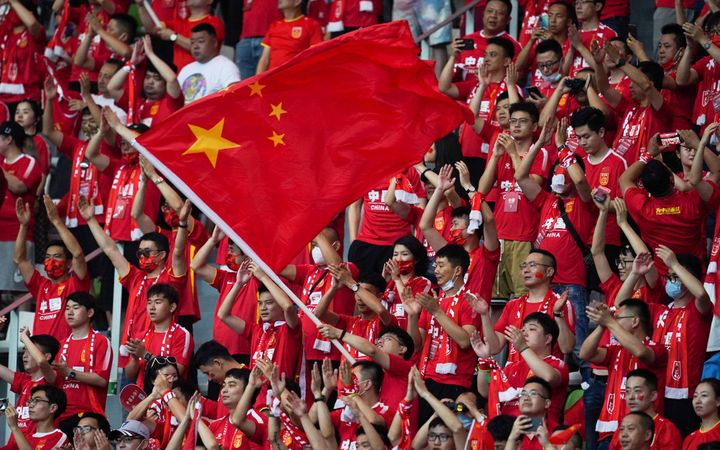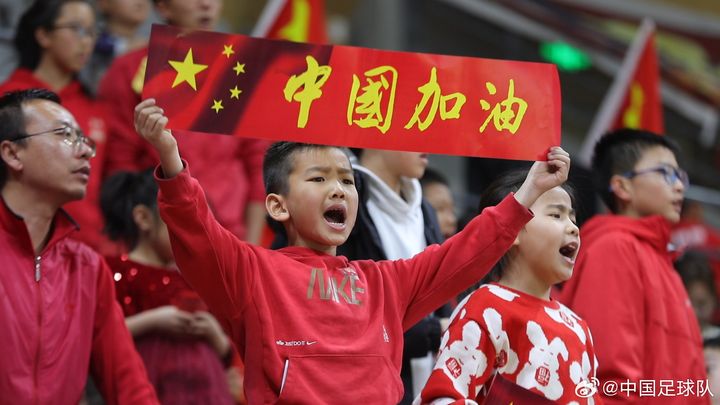Chinese football, a topic that countless Chinese people love and hate, has been hovering in difficulties for many years. Its performance on the international stage is unsatisfactory, which is extremely distressing. What exactly are the reasons that have led Chinese football to be in a downturn for a long time?
Why Is Chinese Football So Poor?
I. Weak football infrastructure
In football powerhouses, football fields can be seen everywhere. Whether in cities or in rural areas, there are sufficient football pitches for people to use. In China, land resources are tight. In urban planning, commercial and residential land is often given priority, leaving extremely limited space for football fields. In big cities, high-rise buildings are lined up one after another, but it is very difficult to find a few standard football fields. The situation in small and medium-sized cities is also not optimistic. Public sports facilities are scarce, and there are even fewer football fields. This makes the majority of football enthusiasts lack sufficient venues to sweat freely and hone their skills. Without good infrastructure as support, the popularity of football is naturally greatly reduced.
II. Imperfect youth training system
Youth training is the foundation of football development and the cradle for cultivating excellent football talents. However, there are many serious problems in China’s youth training system. First, there is a lack of professional youth training coaches. The level of youth training coaches directly determines the growth speed and quality of young players. At present, the number of professional youth training coaches in China is seriously insufficient. Many coaches’ own football concepts and teaching methods are relatively backward and cannot give children scientific and effective guidance. Second, the training methods are not scientific and advanced enough. Compared with advanced foreign youth training systems, our training methods often pay too much attention to instilling physical fitness and tactics, while ignoring the polishing of players’ technical details and the cultivation of creativity. Third, the selection of talents is not comprehensive and fair enough. When selecting young players, people often pay too much attention to physical conditions and temporary performances, while ignoring important factors such as players’ potential, character, and football IQ. This makes many talented children buried and unable to get the due cultivation and development opportunities.
III. Weak football cultural atmosphere
Football culture is the internal driving force to promote the development of football. In some football powerhouses, football has become an indispensable part of people’s lives. From children to the elderly, everyone loves football and participates in football. In China, although there is a huge fan group, the proportion of people who actually participate in football is relatively low. The society does not pay enough attention to football. Parents are more inclined to let their children choose the traditional academic path and think that playing football has no future and is too risky. In school education, football is often ignored. It is not uncommon for physical education classes to be occupied by other major subjects. Without a strong football cultural atmosphere, the development of football loses fertile soil.
IV. Poor management of professional leagues
The Chinese football professional league should have been an important force to promote the development of Chinese football. However, in recent years, many chaos have been exposed. Unhealthy phenomena such as match-fixing and black whistles occur from time to time, seriously damaging the image and credibility of the league. Clubs are poorly managed and investors are frequently changed, resulting in poor team stability and inability to form long-term development plans. The salary level of players is too high and does not match their actual competitive level. This makes some players lose the motivation to make progress and be content with the status quo. In addition, the competition rules of the league and the level of referee enforcement also need to be improved. Some controversial penalties often cause dissatisfaction and doubts among fans.
V. Defects in institutional mechanisms
There are also some problems in the management system and operation mechanism of Chinese football. Multiple management and unclear responsibilities lead to low decision-making efficiency and unreasonable resource allocation. In terms of talent cultivation and selection mechanisms, too much attention is paid to short-term results and there is a lack of long-term planning. At the same time, the football management department does not communicate and cooperate closely enough with all sectors of society, and fails to fully mobilize social forces to participate in football development.
In short, the unsatisfactory performance of Chinese football is the result of multiple factors. To change the current situation of Chinese football and realize the rise of Chinese football, we must start from infrastructure construction, improving the youth training system, creating a strong football cultural atmosphere, strengthening professional league management, and reforming institutional mechanisms. This is a arduous and long-term task that requires the joint efforts of the government, society, enterprises, and everyone who loves football. I believe that as long as we work together and persevere, Chinese football will one day usher in a glorious moment.
Why Is Chinese Football So Poor? And Future Outlook
Chinese football, a topic that countless Chinese people love and hate, has been hovering in difficulties for many years. Its performance on the international stage is unsatisfactory, which is extremely distressing. What exactly are the reasons that have led Chinese football to be in a downturn for a long time? We have analyzed many reasons such as weak football infrastructure, imperfect youth training system, weak football cultural atmosphere, poor management of professional leagues, and defects in institutional mechanisms.
However, we cannot always be immersed in dissatisfaction with the current situation. The future of Chinese football is not completely dark. In recent years, the country and all sectors of society have begun to pay attention to football development and have taken a series of positive measures.
In terms of infrastructure construction, the government has increased investment in sports venues. More and more cities have begun to plan and build football fields. Some schools are also gradually paying attention to the development of campus football and improving the conditions of football fields on campus, providing students with a better environment for playing football. With the gradual implementation of these measures, the popularity of football will continue to increase.
The youth training system is also constantly being improved. More and more professional football coaches are devoting themselves to youth training. They bring advanced football concepts and scientific training methods. At the same time, football associations and clubs at all levels have also increased investment in youth training and established more youth training bases, providing a better training platform for talented children. In addition, the talent selection mechanism is also gradually being optimized, paying more attention to the comprehensive quality and potential of players, so that more talented children have the opportunity to show themselves.
The football cultural atmosphere is also gradually becoming stronger. With the development of domestic professional leagues and the holding of various football events, more and more people are beginning to pay attention to and love football. All sectors of society are also actively involved in the dissemination of football culture. By holding football-themed activities and carrying out football public welfare projects, football is brought into the lives of more people. Parents’ attitudes towards their children’s participation in football are also gradually changing. They begin to realize the importance of football for children’s physical and mental health and all-round development.
The management of professional leagues is also constantly strengthening. The football association has increased its crackdown on unhealthy phenomena such as match-fixing and black whistles, improved the competition rules and referee enforcement system of the league, and improved the fairness and credibility of the league. Clubs are also strengthening their own management, paying attention to long-term development plans, and improving the stability of the team. At the same time, the professional quality of players is also constantly improving. They cherish their careers more and strive to improve their competitive level.
In terms of institutional mechanisms, football management departments are also actively exploring the road of reform. Clarify the responsibilities of various departments, improve decision-making efficiency, and allocate resources reasonably. Strengthen communication and cooperation with all sectors of society and fully mobilize social forces to participate in football development. Establish a scientific and reasonable talent cultivation and selection mechanism, pay attention to long-term planning, and lay the foundation for the sustainable development of Chinese football.
In short, although Chinese football currently faces many difficulties and challenges, we have reasons to believe that as long as the country, society, enterprises, and everyone who loves football work together and persevere in promoting football reform and development, Chinese football will definitely be able to get out of the predicament and achieve a rise. In the future, Chinese football will surely shine on the international stage and bring more honors and pride to the country and the people.